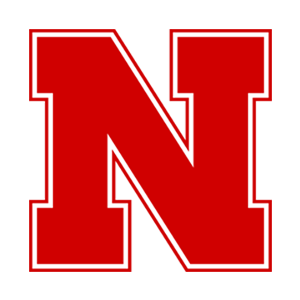One second, I was watching swim practice.
The next, my mom had me standing on a diving board.
She had talked to the diving coach, told him I used to be a gymnast, and basically asked if I could jump in and see what I could do.
So I did.
I climbed up there, bounced once, and just started flipping. It felt natural.
By the end of that practice, I was hooked.
That unexpected moment became the start of my diving journey.
Lessons the Hard Way
I really started taking diving seriously around my sophomore year of high school.
I listened to older athletes, the ones who spoke about work ethic, and I took that to heart.
Maybe a little too much.
I was still on the swim team too, so my days looked like this: swim in the morning, dive in the afternoon, lift weights at night.
Repeat.
But I ignored everything else. I wasn’t eating right, wasn’t recovering properly, and definitely wasn’t thinking about my mental health.
It all caught up to me in my junior year.
My back started hurting constantly. I tried everything—stretching, icing, heating—but nothing worked. When I finally went to the doctor for a scan, it turned out I had two fractures in my lower back.
That meant more than half a year of rest.
No diving. No competing.
Just waiting.
I was crushed. I thought my career might be over.
Thankfully, I didn’t need surgery. And I had my family and my faith to get me through it.
When I finally came back my senior year, I was smarter.
I took nutrition seriously. I respected recovery. I saw the sport differently.
A Dream Comes True
Signing my letter of intent was one of the proudest moments of my life.
I was the first in my family to compete in college athletics, and it meant the world to all of us.
We didn’t really know what to expect from the recruiting process, but I knew I wanted to compete at the college level since I was a kid.
It was emotional, exciting, and felt like the payoff for all those early mornings, late-night lifts, and tough setbacks.
A Tough Start, A Stronger Mindset
College didn’t start the way I expected.
Before I even had a chance to compete, I tore up my shoulder and had to have surgery. I redshirted my freshman year and had to sit out the entire season.
Another setback.
But this time, I had a better mindset.
I stayed involved with the team. Showed up at practice. Watched lifts. Traveled with the squad.
The energy around me kept me going, even when I couldn’t compete.
Our coaches, trainers, nutritionists, and mental health staff were all there for me. I leaned on them. I learned from them.
And I used that time to grow. I started diving deeper into nutrition, mental preparation, and just learning the "game within the game."
I didn’t realize how much of diving is mental until I had time to step back and see it.
What Comes Next
I’m heading into my sophomore year now, and I feel ready.
I’ve been working closely with physical therapists and trainers to get my shoulder back to where it needs to be.
I’m in the right headspace.
I’m excited.
Long-term? I want to see how far diving can take me.
But I’m also studying exercise science, and my plan is to go to physical therapy school.
I've already started shadowing in clinics, and honestly, my own injury history has made me passionate about helping others recover.
Final Thoughts
My path hasn’t been smooth. But I don’t think anyone's is.
There are always going to be bumps along the way.
What matters is how you respond.
Sometimes you need to change your routine. Sometimes you just need to stay the course.
But if you stay grounded, keep learning, and surround yourself with people who lift you up, you’ll find your way.
And that’s what I’m doing—diving into life with a smile on my face and a positive attitude.
------






